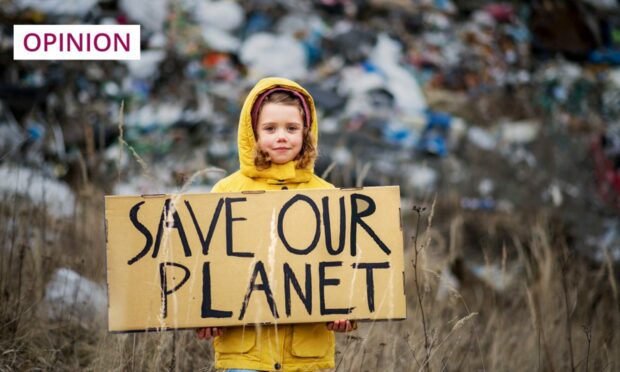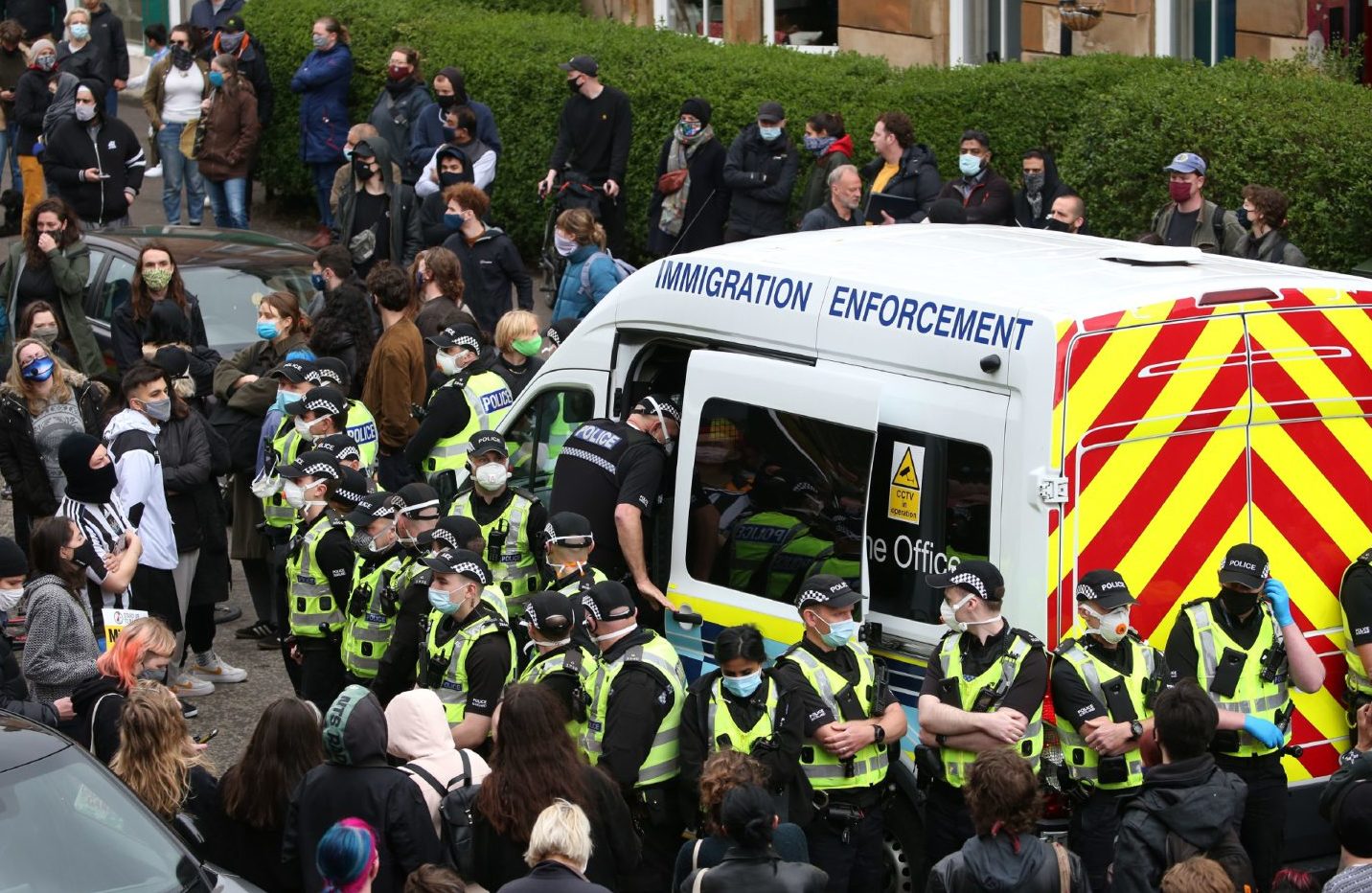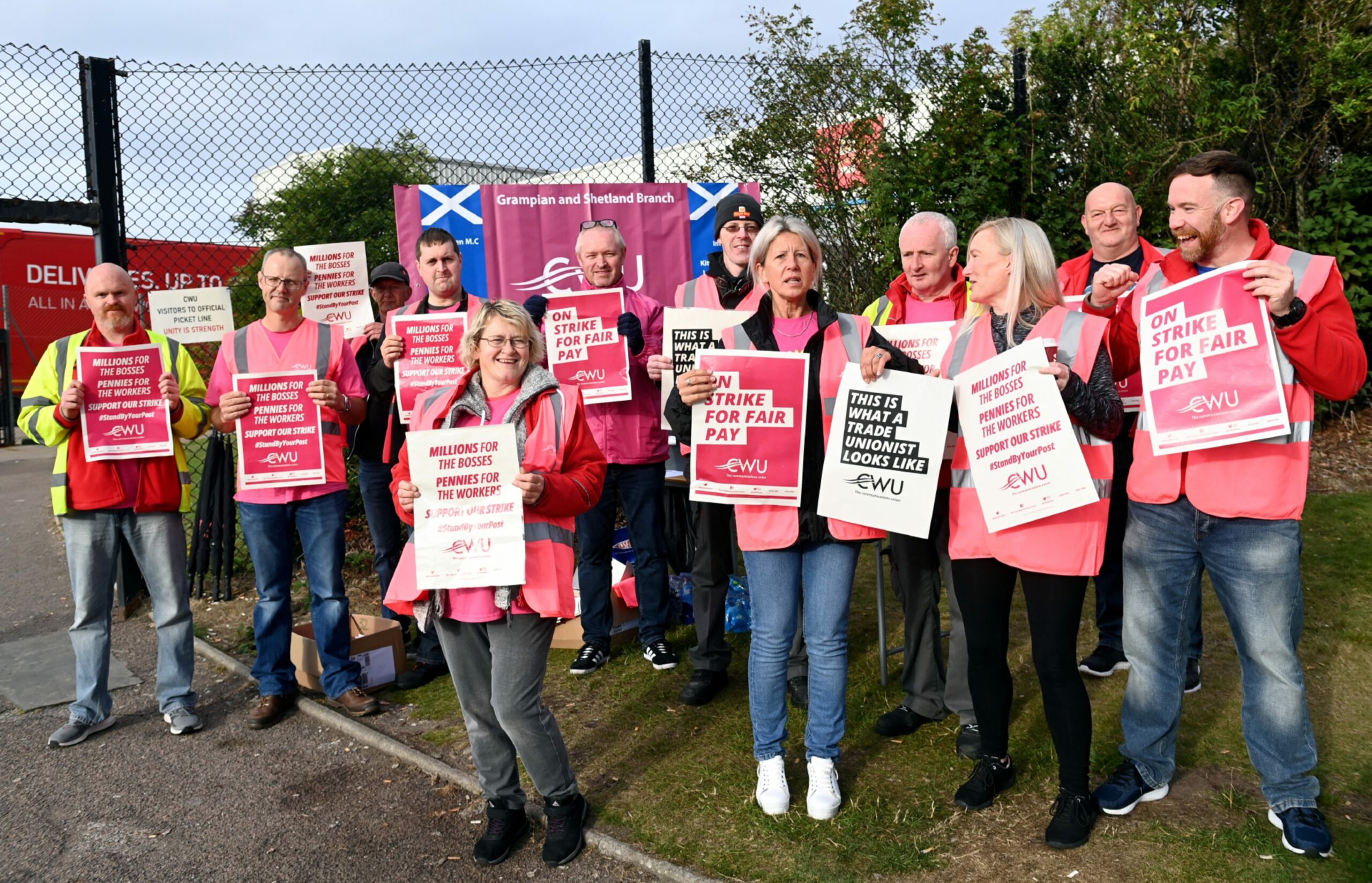It’s a grey, rainy day. My wee boy, my husband and I, bundled in jumpers and big coats, stand in front of Glasgow Sheriff Court as the River Clyde moodily snakes by.
We’re all sharing our first visit to court. Honestly, I’m surprised when I realise I haven’t been before. Certainly, with a youth as misspent as mine, I could have been one of any of the people standing outside, looking nervous, plucking at the cuffs of an unfamiliar, smart suit jacket.
Instead, the whole family has come to attend a rally in solidarity with three demonstrators arrested during the Glasgow Kenmure Street protest against a home office immigration raid last year. Despite the rain, there’s an excellent turnout.

People hold homemade cardboard placards and banners, shouting “Drop the Charges”. There’s polite chit-chat, and someone passes around a flask of coffee.
An initially intimidating anarchist, bandana covering most of his face, smiles down and laughs at our wee boy as he toddles about. So far, my son’s smashing a bag of Pom-Bears into his face and screaming for “more, more, MORE… teh-bears” is as riotous as it gets.
Later, another mother arrives with her little girl. I teach my son to chant “strong and brave”, which seems to be the toddler-accessible essence of what the Kenmure Three were that day, in sacrificing their own relative peace to safeguard the freedoms of others.
We all sing Head Shoulders, Knees and Toes, and play “dizzy ducks”. Eventually, when the press come for pictures and interviews, we pull our mini-protestors off to the side, since my husband, always thoughtful, worries our hearty renditions of Hickory Dickory Dock might be disruptive. I reply that protests are meant to be disruptive, but I do see his point.
Not my little boy’s first protest
This is not my little boy’s first protest and nor will it be his last. I believe in the right to protest. Use it or lose it, as they say. And I think there is something not just profoundly powerful, but profoundly uplifting about collectivisation, about gathering en masse.
Next weekend, I’ll be taking my son door to door, not for trick-or-treating, but with his buggy loaded up with posters declaring: “We Support Striking Workers”, which I hope I’ll be able to convince our neighbours and local businesses to display in their windows.
Our Halloween party the next day will be at the Red Sunday School – an alternative Sunday school which encourages “creative exploration of nature, culture and society from a radical perspective, and encourages active participation in the great struggles of our day.”
The fancy dress theme is socialist heroes, so my son will wear his fireman’s uniform, and I’ll make him a placard demanding fair wages for frontline workers. The littlest shop steward.
Teaching kids to use their privilege to make a difference
My son is not yet two so, of course, he won’t remember any of this. As he grows, I’ll encourage him to forge his own values and opinions. It might even end up that he won’t share my politics at all.
If we are frustrated by something, we should challenge it, and that there are productive, meaningful ways to make change in the world
But, he’ll grow up in a household that teaches him to see that all experiences or perspectives are not like his own. That, where something is wrong, we should try and right it. If we are frustrated by something, we should challenge it, and that there are productive, meaningful ways to make change in the world.
I’m involving him with politics not just to encourage the idea of critical thought or engagement with society, community and politics – though I think these are vital and valuable – but also so he learns to exercise those equally important empathy muscles. To understand the privilege he has, and to use that platform and privilege to try to make a difference.
Protest is an act of hope
This week, when I saw the protesters in their Just Stop Oil T-shirts, after throwing tomato soup over Van Gogh’s Sunflowers, I was mostly struck by how very young they were. Whatever you think of the protest itself (throwing good food about during a cost of living crisis and potentially damaging artwork would not be my choice of direct action), you cannot deny their conviction.
These young women are 20 and 21. At 21, I was trying to be an actress in London, and the only thing I put serious effort into was rummaging through vintage shops and curating ridiculous outfits that would withstand dancing till 3am at Camden Palace. I am quite sure I was entirely self-involved, thinking only of how to claim my place in the world. But these women stood up and did something physical and extremely visible at that same age.
Breaking: Just Stop Oil throw soup on Van Gogh Sunflowers as they demand the Government act.
This is what oil is doing to our world. We understand why young people are angry.
Extinction Rebellion will bring ordinary people together to protest from 12pm in Trafalgar Sq today. pic.twitter.com/8RI3jir7ZS
— Extinction Rebellion UK 🌍 (@XRebellionUK) October 14, 2022
I look at the picture of those young women, who could have been out dancing and enjoying the revival of afghan coats, and – like most parents – I worry about the future we’re giving our children. What literal, cultural and political landscape will my beautiful boy inherit, if there will be anything to inherit at all?
It’s for that reason, too, that I believe teaching your child political engagement is more important than ever. Not just as a way of shaping their own future, but also as an act of hope. There is power and agency in protest and, equally, I want to teach my little boy that there is power, agency and hope in his actions.
Kerry Hudson is an Aberdeen-born, award-winning writer of novels, memoirs and screenplays



Conversation